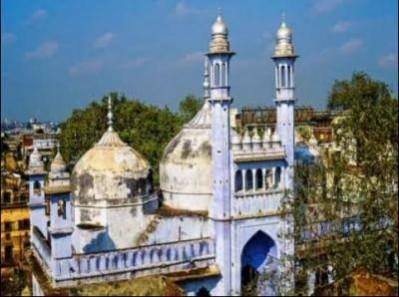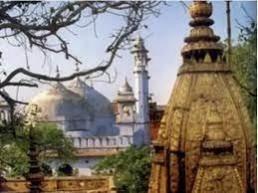
In a landmark ruling, a Varanasi court has granted Hindus the right to worship in the sealed basement of the Gyanvapi mosque. This decision has sparked a wave of reactions from both Hindu and Muslim communities. The court has directed the district administration to make the necessary arrangements within the next seven days, allowing Hindu devotees to offer prayers at 'Vyas Ka Tehkhana', a sealed area inside the mosque.
The ruling was delivered by Judge AK Vishvesha, who had heard the arguments of the parties involved and reserved his verdict on January 30. The court further stated that the puja should be conducted by a priest named by the Kashi Vishwanath Trust Board. The Varanasi District administration took over possession of the southern cellar within the Gyanvapi mosque complex on January 24.
Advocate Vishnu Shankar Jain, representing the Hindu side, expressed his satisfaction with the court's decision. "The Hindu side has been allowed to offer prayers at 'Vyas Ka Tehkhana'. The District Administration will have to make arrangements within seven days. Everyone will now have the right to perform puja," he said.
Muslim side to appeal against the ruling
The Muslim side, however, expressed their discontent with the ruling and announced their intention to appeal against the court order in the High Court. The Allahabad High Court has already issued a notice to the Anjuman Intezamia Masjid Committee, which manages the Gyanvapi mosque, on a plea challenging a Varanasi court's refusal to direct the Archaeological Survey of India (ASI) to conduct a survey of the 'wazu khana' area in the mosque complex.
The Gyanvapi mosque has four 'tekhana', or cellars, in the basement. One of these is still in the possession of a family of priests who used to live there. The family had argued that, as hereditary priests, they should be allowed to enter the structure and perform pujas. According to the petition, the priest, Somnath Vyas, used to perform prayers until 1993, when the cellar was closed.
Historical significance and future implications

The court's decision has been seen as a victory by the Hindu petitioners and advocates. They displayed a victory sign following the court's approval for puja at 'Vyas Ka Tehkhana'. Vyas had petitioned that, as a hereditary pujari, he should be allowed to enter the tahkhana and resume pooja.
The Gyanvapi mosque has been a site of contention for many years. It had earlier been claimed that debris from statues of Hindu gods was found during a survey of the area. It had also been claimed that parts of a pre-existing structure, ruled as a temple by the ASI report, including pillars, were used in building the mosque.
This ruling is reminiscent of the Ayodhya dispute, where the Supreme Court of India in 2019 ruled in favor of the construction of a Hindu temple at a disputed religious site, marking a significant moment in the history of Hindu-Muslim relations in India.
The Varanasi court's decision is a significant development in the ongoing debate over religious rights and the co-existence of different faiths in India. It remains to be seen how this ruling will impact the future of interfaith relations and religious freedom in the country. This ruling, while being a victory for the Hindu petitioners, has also opened the door for potential appeals and further legal battles. The balance between religious rights and historical claims continues to be a delicate issue in India, and this ruling adds another layer to the ongoing discourse.
Highlights
- A Varanasi court has granted Hindus the right to worship in the sealed basement of the Gyanvapi mosque.
- The court has directed the district administration to make arrangements within seven days for Hindu devotees to offer prayers.
- The Muslim side expressed discontent with the ruling and plans to appeal against the court order in the High Court.
- The Gyanvapi mosque has been a site of contention for many years, with claims of debris from Hindu statues found during a survey.
- The ruling is a significant development in the ongoing debate over religious rights and co-existence of different faiths in India.

















